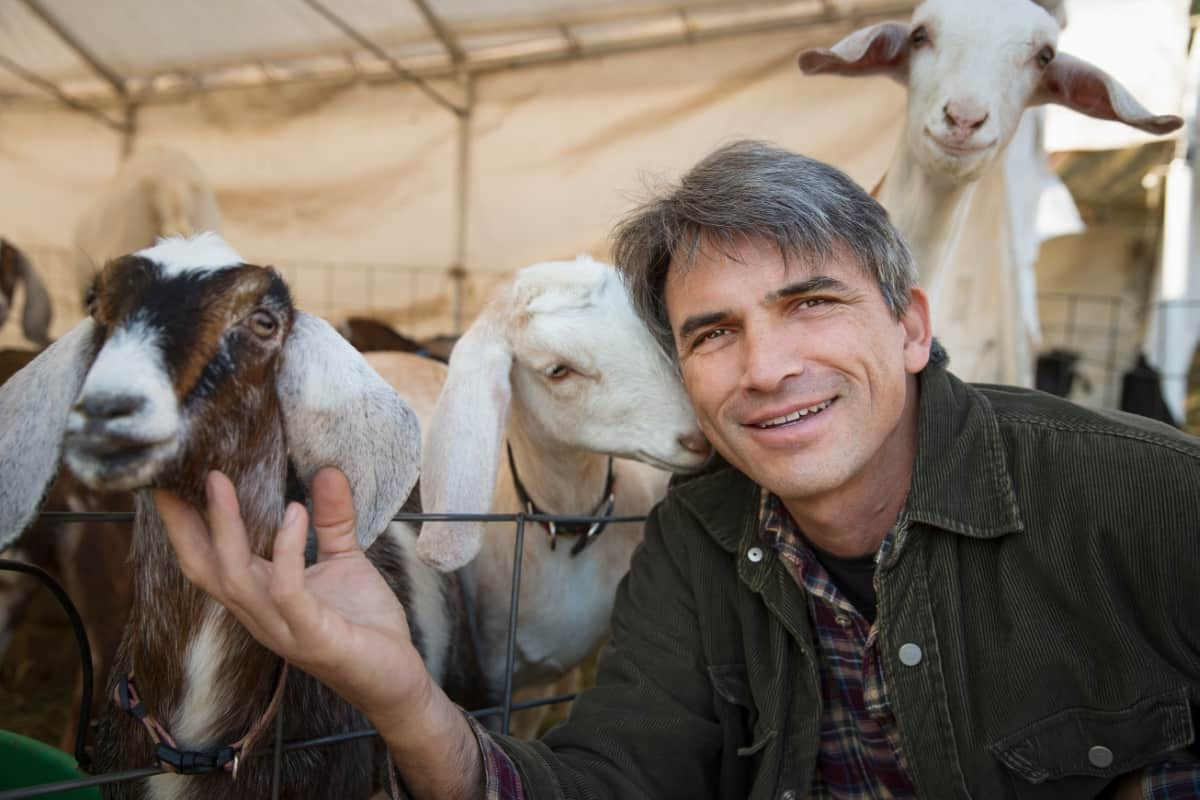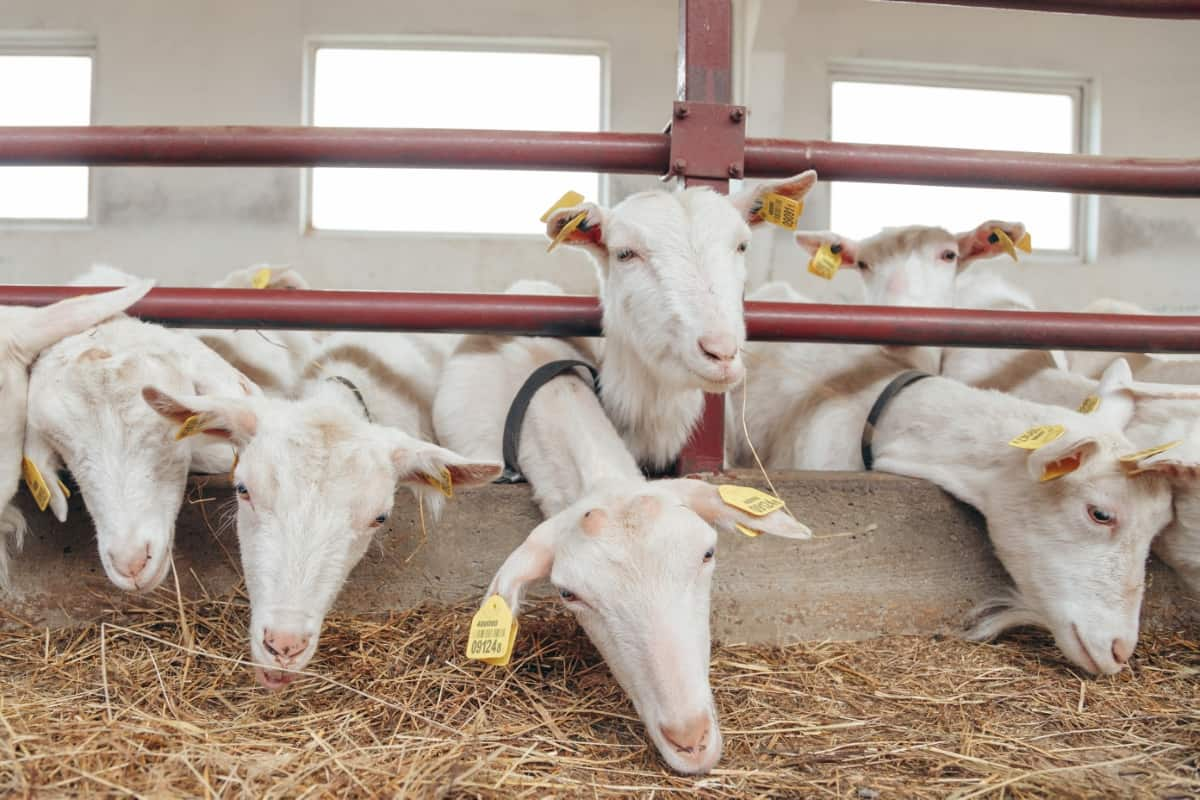Contract farming has grown in importance over the years as a means of organizing the commercial agricultural production of both small and large farmers. The animal agriculture sector is no exception to this trend, with contract farming becoming increasingly prevalent, particularly in the goat farming industry. The rapid increase in demand for goat products worldwide has led to an influx of investment in goat farming operations, leading to the emergence of contract farming.

Goat Contract Farming
Goat Contract Farming for Sustainable Livestock Production
This farming model incorporates the advantages of commercial farming while also addressing the environmental, social, and economic issues related to intensive farming. Contract farming of goats involves contractual agreements between the goat farmer and a contractor, often a larger agricultural firm, where the farmer agrees to raise goats according to specific conditions stipulated by the contractor in exchange for a market for their product and a predetermined price.
This model is inherently sustainable as it combines the benefits of economies of scale with individual farmers’ local knowledge, resulting in more effective use of resources, improved animal welfare, and decreased environmental impact.
Benefits of Goat Contract Farming for Small-scale Farmers
One primary benefit is reducing risk and uncertainty related to price fluctuations and market demand. Given the contractually agreed prices for goat products, farmers are insulated from volatile market conditions. Another advantage is access to quality inputs and technical guidance from contractors, helping farmers adopt advanced farming practices, improve productivity, and increase income.
Contract farming also enables small-scale farmers to participate in commercial goat farming without investing heavily in marketing and processing facilities, alleviating financial constraints. Furthermore, this model allows small farmers to diversify their income sources and enhance their livelihood security. By integrating themselves into larger value chains, farmers gain the economy and develop new skills and knowledge, fostering their capacity to engage in more sophisticated forms of agriculture.
Goat Contract Farming Models for Rural Development
There are several models of contract farming, each with its unique advantages, depending on the specific conditions of the region. One prevalent model is the ‘centralized model,’ where the contractor organizes production, often providing inputs and technical services, and then buys the output from many small-scale farmers. The ‘multipartite model’ involves various organizations, including government bodies, private companies, and sometimes financial institutions, working together to support contract farming initiatives.
This model can be particularly effective in areas where significant institutional support is necessary to overcome barriers to commercial farming. Another model, the ‘informal model,’ is characterized by short-term seasonal contracts between farmers and contractors. While this model offers less security to farmers, it also requires less commitment, making it suitable for farmers looking to experiment with commercial farming.
Best Practices for Goat Contract Farming in Grazing Systems
Implementing best practices in goat contract farming in grazing systems is paramount for sustainable livestock production. An essential aspect is the management of grazing lands. Rotation grazing, where different pasture areas are used at different times, allows for the natural rejuvenation of vegetation and can help control parasites, benefiting both the environment and the goats’ health. Also, using local goat breeds adapted to local conditions can significantly enhance productivity and resilience.
In case you missed it: Ultimate Guide to Start Backyard Goat Farming: Setup and Care

Contractors and farmers should work together to ensure adequate veterinary services, nutrition management, and general care. Training programs should be provided to farmers on proper goat handling, feeding practices, and health management to optimize productivity and ensure animal welfare.
It’s also essential to have clear and fair contracts in place. They should include detailed roles and responsibilities of both parties, pricing mechanisms, quality standards, and mechanisms for dispute resolution. These best practices contribute to the profitability of the farming business and promote sustainability and animal welfare.
How to Start a Goat Contract Farming Business
The first step involves conducting a thorough feasibility study to understand the local market conditions, the demand for goat products, and the challenges in the industry. Once the feasibility study is completed, farmers should develop a comprehensive business plan outlining their business objectives, operating procedures, marketing strategy, and financial projections. The next step is to secure a contract with a reputable contractor.
The contract should be fair and transparent, clearly stipulating the obligations and expectations of both parties. Once the contract is in place, farmers can start setting up their goat farm, which involves procuring the necessary inputs such as land, goats, feed, and farming equipment.
Proper care and management for the goats are crucial to ensure high productivity and quality. Farmers may also need to arrange veterinary services to keep their goats healthy. Lastly, a crucial part of running a successful goat contract farming business is maintaining a good relationship with the contractor and consistently delivering high-quality goat products.
Contract Farming Agreements for Goat Breeding Programs
By involving contractors who often have access to superior breed stock, contract farming can improve the genetic quality of goats, leading to higher productivity and better product quality. The contract farming agreements for goat breeding programs should detail the obligations and responsibilities of both parties concerning the breeding program.
This includes the provision of breeding stock, breeding services such as artificial insemination, pregnancy care, kid rearing, and health management. It is crucial that the agreements also include specific standards for animal welfare, given that good breeding practices are closely tied to the overall welfare of the goats. With a well-structured contract farming agreement, goat breeding programs can benefit from improved genetics, while farmers can enjoy higher productivity and incomes.
Contract Farming of Organic Goats for Specialty Markets
Contract farming can be a viable model for producing organic goat products for specialty markets. In this model, the contractor typically provides farmers with specific guidelines to ensure that the goats are raised according to organic farming principles, including feeding the goats with organic feed, providing access to open pastures, and avoiding using synthetic drugs and hormones.
In case you missed it: Unlocking the Potential of Goat Breeding and Genetics: Strategies for Improved Productivity and Profitability

These specific guidelines ensure the organic quality of goat products and contribute to the sustainability of farming operations. Contract farming of organic goats requires specialized knowledge and strict adherence to organic farming standards, which can be challenging for small-scale farmers. However, farmers can successfully venture into this niche market with the right support from contractors, including access to organic inputs, technical assistance, and a fair price premium for organic products.
Conclusion
Goat contract farming is an innovative model of farming that offers a wide range of benefits, from sustainable livestock production to income diversification for small-scale farmers and from rural development to integration into larger value chains. It provides opportunities for farmers to adopt advanced farming practices, enhance their skills and knowledge, and access wider markets.
- Feed Your Flock for Less: Top 10 Tips to Save on Chicken Feed
- Ultimate Guide to Ossabaw Island Hog: Breeding, Raising, Diet, and Care
- Hatching Answers: The Top 10 Reasons Your Chickens Aren’t Laying Eggs
- Eggs and Economics: Breaking Down the Cost of Raising Backyard Chickens
- Defend Your Greens: Proven Methods to Keep Iguanas Out of Your Garden
- Ultimate Guide to Cinnamon Queen Chicken: A Comprehensive Guide for Beginners
- Ultimate Guide to California Tan Chicken: Breeding, Raising, Diet, Egg-Production and Care
- Ultimate Guide to Marsh Daisy Chicken: Breeding, Raising, Diet, and Care
- 10 Types of Chicken Farming Businesses You Can Start for Profits